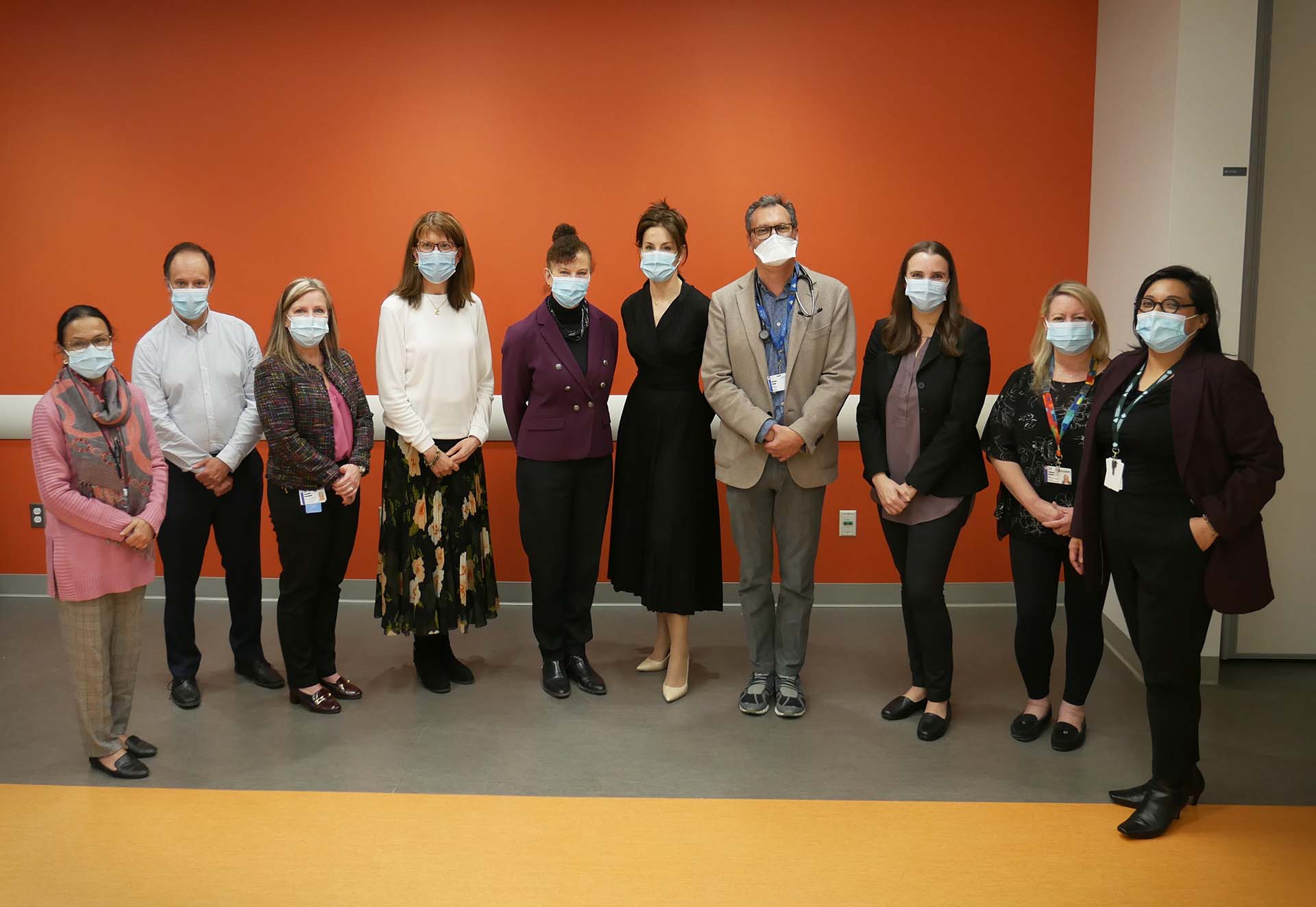MUHC offers immunocellular therapy for patients with leukemia or lymphoma
Treatment uses modified white blood cells to target cancer cells that are resistant to standard therapies.
The McGill University Health Centre (MUHC) Cancer Care mission is pleased to announce that the Ministry of Health and Social Services (MSSS) has officially designated the MUHC as a provider of the Immune Effector Cell Therapy “CAR-T” Program for adult patients. Patients with specific types of leukemia or lymphoma that are resistant to standard therapies will now be able to benefit from this innovative treatment, which uses genetically modified white blood cells to attack and destroy cancer cells. The MUHC has been added to the list of centres designated by the MSSS to administer the therapy, which is also available at the Hôpital Maisonneuve-Rosemont, the Centre hospitalier universitaire Sainte-Justine of the CIUSSS de l’Est-de-l’Île-de-Montréal and the Centre hospitalier universitaire de Québec– Université Laval.
“We are delighted to be able to extend the services of this innovative therapy and allow more patients to benefit from this leading-edge technology in Quebec. Each year, about 20 patients will be admitted to the MUHC and treated by a dedicated and qualified team,” says Dr. Pierre Gfeller, President and Executive Director of the MUHC.
The CAR-T therapy is a customized treatment made from T-cells, a type of white blood cell that plays a crucial role in the proper functioning of the immune system. These cells are taken from the patient's blood and then modified in the laboratory to carry a new gene that allows them to target cancer cells. The modified lymphocytes thus created are then administered to the patient in a single intravenous dose.
At the MUHC, the treatment is available to the following patients who have not responded to standard therapies: those over the age of 18 with diffuse large B-cell lymphoma (DLBCL) and those aged 18-25 with B-cell acute lymphoblastic leukemia (b-ALL), who have not responded to standard therapies. The indications for this treatment will no doubt change with time.
The MUHC has assembled a dedicated and professional team to manage all aspects of this program, as the medical director of the Immune Effector Cell Therapy Program Dr. Michael Sebag, attests. “This groundbreaking therapy has been made possible through exceptional teamwork for the patients who need it. We are committed to providing our patients with unparalleled service and we are pleased that these years of hard work have come to a result,” he says.
“This is a real opportunity for our patients who often have no other treatment options,” says Christine Bouchard, clinical-administrative coordinator of the MUHC Cancer Care Mission.
“We are pleased to open the MUHC CAR-T Program to the public and to become one of the designated centres in Quebec to offer this innovative form of immune therapy. The program would not have been possible without the outstanding teamwork and support of the MUHC,” adds Dr. Gizelle Popradi, director of the MUHC Stem Cell Transplant Program.
The treatment tisagenlecleucel, known under the trade name KYMRIAHMD and developed by the company Novartis received approval from Health Canada in September 2018 and subsequently received a positive opinion from the National Institute of Excellence in Health and Social Services (INESSS) in January 2019. It is the first personalized T-cell therapy approved in Canada. YESCARTA® received its approval from Health Canada in February 2019 and became reimbursed in Quebec as of November 2020. ABECMA® received its approval from Health Canada in May 2021, for treatment of multiple myeloma, but remains under qualifying notice and is not yet approved for use in Quebec or Canada.

“At the MUHC, the clinical team is trained to offer this new category of therapy and is ready to welcome its first patient,” says Chantal Souligny, recently retired director of nursing and project sponsor. “This is a new chapter for the MUHC Cancer Care mission.”
Media contact
Evelyne Dufresne
Information Officer
McGill University Health Centre
[email protected]

